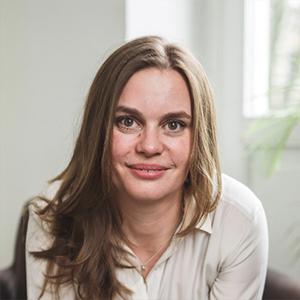
Eva Dresbrach
Eva Dresbach (PhD) works as a practitioner in the area of child and adolescent psychotherapy. She conducts workshops as Advanced Level Schema Therapist and Supervisor-Trainer in Individual Child-Adolescent Schema-Therapy. She has published therapy manuals about peer-problems and about peer-victimization and bullying, combining cognitive-behavioral and schema therapy interventions. In addition, she has published a therapy-card-set for children and adolescents with a focus on positive schemas and a manual for clinicians starting to work as schematherapists for children and adolescents.
Happy, healthy, wise - Meeting and strengthening adaptive modes in children, adolescents and young adults
Participants: Clinical practitioners working with children, adolescents and young adults. Basic experience in Schema Therapy is required.Background: It’s always a beautiful moment when we encounter an adaptive – playful, creative, competent or even wise – mode in a therapy session. Focusing on competent modes can not only support patients’ positive self-perception. Furthermore, the therapeutic relationship can gain a lot from experiencing and sharing joy, lightness, strength, warmth or inner calmness. As children’s and adolescent’s schemas and modes are still developing, therapists have a great opportunity to specifically build positive schemas and healthy modes, thus supporting the completion of developmental tasks. We meet and activate different adaptive modes: The happy child mode indicates that emotional needs are sufficiently met. In happy child mode, a state of flow can be experienced. Creative and playful impulses are expressed. The competent mode allows problem-solving, socially competent behavior, compassion as well as self-regulation. In patients with traumatic experiences and developing personality disorders, the resilient mode can be understood as a competent mode that has developed despite adversities. The inner helper can be defined as an adaptive parent-mode or adaptive peer-mode, which enables individuals to be self-compassionate and practice mindfulness. Focusing on positive schemas and healthy modes, broadens the treatment indication for schema therapy in children and adolescents. Therapists can build and strengthen resources, self-regulation and socially adaptive behavior in patients with lower risk of developing strong critical or dysfunctional modes. Additionally they can use this approach while treating children and adolescents who have experienced multiple difficulties, severe frustration of emotional needs and toxic relationships. For these patients, especially with trauma and emerging personality-disorders, strengthening the resilient mode (as a variation of the competent mode) and the inner helper can balance maladaptive schema’s impact on young patients’ development. Positive schemas and adaptive modes can be addressed by a variety of interventions with children, adolescents and their caregivers and also be strengthened in the context of the therapeutic relationship.
Teaching Methods: The workshop starts with a brief look at the connection between resources, resilience, post-traumatic-growth and positive schemas, identifying factors that allow flow-experience, self-regulation, social skills and (self-)compassion in adaptive modes. The main part of the workshop focuses on interventions, strengthening and activating adaptive modes – the happy child mode, the competent or resilient mode and the inner helper. Play-therapy, mode-oriented social-skills training, imagery and schema coaching for parents are applied. Strategies to build self-regulation, socially competent behavior and interventions to promote self-compassion are demonstrated and practiced. Options to address healthy modes in the therapeutic relationship are outlined.
Learning objectives
- Strengthening positive schemas and adaptive modes by using creative techniques
- Using mode-oriented social skills training to strengthen the competent or the resilient mode
- Activating the happy child mode by play and improvisation
- Enhancing self-compassion by building up and activating a helper-mode in imagery and play-therapy
- Promoting positive parent-child-interactions by supporting parents in using mindful communication
Addressing positive schemas and healthy modes in therapeutic relationship

